
Entertainment
-
 DiscoverEU marks 40 years of Schengen with 40,000 free travel passes for young Europeans
The European Commission is celebrating the 40th anniversary of the Schengen Area by offering 40,000 young Europeans the chance to explore the continent through DiscoverEU, part of the31 October 2025Read More...
DiscoverEU marks 40 years of Schengen with 40,000 free travel passes for young Europeans
The European Commission is celebrating the 40th anniversary of the Schengen Area by offering 40,000 young Europeans the chance to explore the continent through DiscoverEU, part of the31 October 2025Read More... -
 Brussels universities to award honorary doctorates to Stromae, Lize Spit, and Amélie Nothomb
The Vrije Universiteit Brussel (VUB) announced on Monday that Stromae, Lize Spit, Amélie Nothomb, François Schuiten, and Ever Meulen will receive joint honorary doctorates from VUB and27 October 2025Read More...
Brussels universities to award honorary doctorates to Stromae, Lize Spit, and Amélie Nothomb
The Vrije Universiteit Brussel (VUB) announced on Monday that Stromae, Lize Spit, Amélie Nothomb, François Schuiten, and Ever Meulen will receive joint honorary doctorates from VUB and27 October 2025Read More... -
 Stolen Renaissance masterpiece returns to Italy after 52 years
After more than half a century, a stolen Renaissance painting has finally returned home to Italy. *Madonna with Child*, a tempera-on-wood masterpiece by Venetian painter Antonio Solario,31 July 2025Read More...
Stolen Renaissance masterpiece returns to Italy after 52 years
After more than half a century, a stolen Renaissance painting has finally returned home to Italy. *Madonna with Child*, a tempera-on-wood masterpiece by Venetian painter Antonio Solario,31 July 2025Read More... -
 Belgian seaside resorts: highlights of royal De Panne
While Ostend is often dubbed the queen of Belgium’s seaside resorts, the country’s coastline offers many other gems worth discovering. In this series, Belga English explores four distinctive20 July 2025Read More...
Belgian seaside resorts: highlights of royal De Panne
While Ostend is often dubbed the queen of Belgium’s seaside resorts, the country’s coastline offers many other gems worth discovering. In this series, Belga English explores four distinctive20 July 2025Read More... -
 Louis Vuitton named suspect in Dutch money laundering probe
Luxury fashion house Louis Vuitton has been named a suspect in a Dutch money laundering investigation, according to the Dutch Public Prosecution Service (OM). The OM alleges that18 July 2025Read More...
Louis Vuitton named suspect in Dutch money laundering probe
Luxury fashion house Louis Vuitton has been named a suspect in a Dutch money laundering investigation, according to the Dutch Public Prosecution Service (OM). The OM alleges that18 July 2025Read More... -
 Brussels tops global rankings for international meetings as tourism soars to new heights
Brussels has once again secured its position as the world’s top city for international meetings, according to the latest annual report from the Union of International Associations (UIA).26 June 2025Read More...
Brussels tops global rankings for international meetings as tourism soars to new heights
Brussels has once again secured its position as the world’s top city for international meetings, according to the latest annual report from the Union of International Associations (UIA).26 June 2025Read More... -
 Coffee prices keep climbing in Czech establishments
The cost of a cup of coffee in Czech restaurants and cafés has increased by 4% over the past year, now averaging CZK 57.80, according to data from the Dotykačka point-of-sale system.15 June 2025Read More...
Coffee prices keep climbing in Czech establishments
The cost of a cup of coffee in Czech restaurants and cafés has increased by 4% over the past year, now averaging CZK 57.80, according to data from the Dotykačka point-of-sale system.15 June 2025Read More...
Politics
-
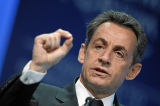 France’s former President Sarkozy to begin appeal trial over Libyan Funding allegations
Former French President Nicolas Sarkozy is set to appear in a Paris court on March 16 for the start of his appeal trial over allegations of illegal campaignRead More...
France’s former President Sarkozy to begin appeal trial over Libyan Funding allegations
Former French President Nicolas Sarkozy is set to appear in a Paris court on March 16 for the start of his appeal trial over allegations of illegal campaignRead More... -
 French parliament poised to halt Macron’s pension reform amid budget Turmoil
French lawmakers are expected to vote Wednesday to suspend President Emmanuel Macron’s controversial pension reform, as the government battles to push next year’s budget through aRead More...
French parliament poised to halt Macron’s pension reform amid budget Turmoil
French lawmakers are expected to vote Wednesday to suspend President Emmanuel Macron’s controversial pension reform, as the government battles to push next year’s budget through aRead More... -
 Ex-minister Ziobro rejects corruption allegations, labels case political
Former Polish justice minister Zbigniew Ziobro vowed on Saturday to pursue “legal and political” action after parliament voted to lift his immunity, clearing the way for prosecutors to bringRead More...
Ex-minister Ziobro rejects corruption allegations, labels case political
Former Polish justice minister Zbigniew Ziobro vowed on Saturday to pursue “legal and political” action after parliament voted to lift his immunity, clearing the way for prosecutors to bringRead More... -
 Pro-Russian hackers briefly disrupt Belgian Telecom websites in DDoS attack
A wave of DDoS attacks briefly disrupted the websites of Belgian telecom operators Proximus and Scarlet on Wednesday morning, with the pro-Russian hacker group NoName057 claimingRead More...
Pro-Russian hackers briefly disrupt Belgian Telecom websites in DDoS attack
A wave of DDoS attacks briefly disrupted the websites of Belgian telecom operators Proximus and Scarlet on Wednesday morning, with the pro-Russian hacker group NoName057 claimingRead More... -
 French Parliament weighs wealth tax as budget gap looms
France’s government on Friday defended its proposed alternative to a sweeping tax on the ultra-rich, as lawmakers clashed over how to tap the country’s highest fortunes to help close aRead More...
French Parliament weighs wealth tax as budget gap looms
France’s government on Friday defended its proposed alternative to a sweeping tax on the ultra-rich, as lawmakers clashed over how to tap the country’s highest fortunes to help close aRead More...
News
-
 Swiss army has “gone back to sleep,” says departing chief
Switzerland briefly awakened to the urgency of national defence following Russia’s 2022 invasion of Ukraine — but has since drifted back into complacency, outgoingRead More...
Swiss army has “gone back to sleep,” says departing chief
Switzerland briefly awakened to the urgency of national defence following Russia’s 2022 invasion of Ukraine — but has since drifted back into complacency, outgoingRead More... -
 Poland and Germany to seal new defence pact in 2026, leaders announce
Polish Prime Minister Donald Tusk and German Chancellor Friedrich Merz said on Monday that their governments plan to sign a new bilateral defence agreement nextRead More...
Poland and Germany to seal new defence pact in 2026, leaders announce
Polish Prime Minister Donald Tusk and German Chancellor Friedrich Merz said on Monday that their governments plan to sign a new bilateral defence agreement nextRead More... -
 Monegasque Language Committee resumes its work
Following the publication of Sovereign Ordinance No. 11,219 on 7 May 2025, which appointed the members of the Monegasque Language Committee, the group has officially reconvened atRead More...
Monegasque Language Committee resumes its work
Following the publication of Sovereign Ordinance No. 11,219 on 7 May 2025, which appointed the members of the Monegasque Language Committee, the group has officially reconvened atRead More... -
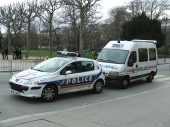 France arrests four, including two Russian nationals, on espionage suspicions
French authorities have arrested four people — including two Russian nationals — as part of an investigation into suspected espionage conducted on behalf of a foreign state, the ParisRead More...
France arrests four, including two Russian nationals, on espionage suspicions
French authorities have arrested four people — including two Russian nationals — as part of an investigation into suspected espionage conducted on behalf of a foreign state, the ParisRead More... -
 German home prices expected to climb over 3% annually, pressuring affordability for new buyers
German residential property prices are poised to grow by more than 3% a year in the coming years, according to a Reuters poll of property analysts, raising fresh concerns about housingRead More...
German home prices expected to climb over 3% annually, pressuring affordability for new buyers
German residential property prices are poised to grow by more than 3% a year in the coming years, according to a Reuters poll of property analysts, raising fresh concerns about housingRead More... -
 UN convention to review environmental complaint over France’s 2030 Winter Olympics
A United Nations environmental body has agreed to examine a complaint accusing France of violating international transparency and public-participation rules during preparations for the 2030Read More...
UN convention to review environmental complaint over France’s 2030 Winter Olympics
A United Nations environmental body has agreed to examine a complaint accusing France of violating international transparency and public-participation rules during preparations for the 2030Read More... -
 Louvre closes major gallery over structural concerns amid ongoing security scrutiny
The Louvre Museum in Paris has closed one of its key galleries after engineers identified structural weaknesses in parts of the historic building, adding fresh unease to an institution alreadyRead More...
Louvre closes major gallery over structural concerns amid ongoing security scrutiny
The Louvre Museum in Paris has closed one of its key galleries after engineers identified structural weaknesses in parts of the historic building, adding fresh unease to an institution alreadyRead More... -
 EU reaches provisional €192.8 billion budget deal for 2026, boosting research, security and competitiveness
EU lawmakers struck a provisional agreement early Saturday on the bloc’s 2026 budget, securing hundreds of millions in additional funding for research,Read More...
EU reaches provisional €192.8 billion budget deal for 2026, boosting research, security and competitiveness
EU lawmakers struck a provisional agreement early Saturday on the bloc’s 2026 budget, securing hundreds of millions in additional funding for research,Read More... -
 Germany to invest €26.5 billion in soldier equipment and armoured vehicles
Germany is set to channel €26.5 billion into modernising troop gear and expanding its fleet of wheeled armoured vehicles over the next decade, according to a finance ministry document seenRead More...
Germany to invest €26.5 billion in soldier equipment and armoured vehicles
Germany is set to channel €26.5 billion into modernising troop gear and expanding its fleet of wheeled armoured vehicles over the next decade, according to a finance ministry document seenRead More...

Most Read
- Teen held after US woman killed in London stabbings
- Football: Farhad Moshiri adamant Everton deal above board
- Greece hails new post-bailout chapter but concerns remain
- The Kokorev case caused wide discussion in Brussels
- EU accession talks stir debate in Moldova: insights from Gagauzia's leader, Yevgenia Gutsul
Economics
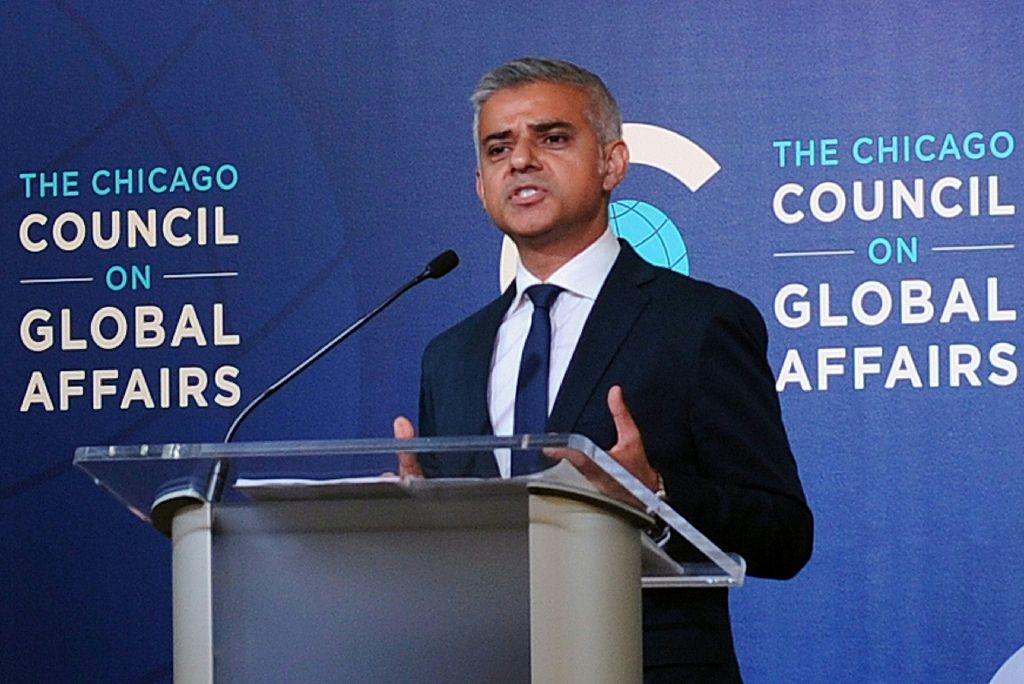
Visiting London mayor Sadiq Khan criticized Republican presidential candidate Donald Trump's comments on Muslim immigration.
Khan, who is of Pakistani descent and became the first Muslim mayor of a major Western capital when he was elected in May, arrived in Chicago to begin a US trip promoting trade ties.
Trump at one point called for a ban on Muslim immigration into the US. The candidate has since modified his stance to urge an immigration ban from countries with "a proven history of terrorism" and for "extreme vetting" of immigrants.
"We play straight into the hands of those who seek to divide us, of extremists and terrorists around the world, when we imply that it's not possible to hold Western values dear and to be a Muslim," Khan said to applause from an audience at The Chicago Council on Global Affairs. It was his first visit to the US as London's mayor.
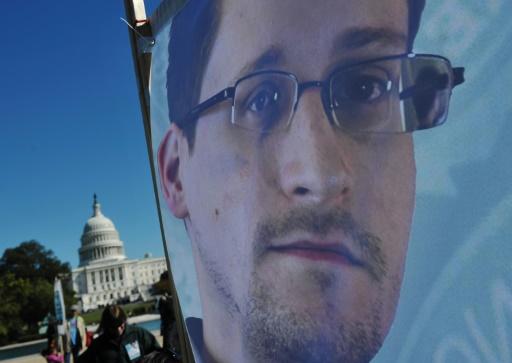
US intelligence whistleblower Edward Snowden called on President Barack Obama to pardon him, saying in comments published Tuesday it had been morally "necessary" to shine a light on mass surveillance.
The former intelligence contractor has spent three years in exile in Russia after initiating the largest data leaks in US history, fuelling a firestorm over the issue of mass surveillance.
"If not for these disclosures, if not for these revelations, we would be worse off," he told Britain's Guardian newspaper in a video-link interview from Moscow on Monday.
"Yes, there are laws on the books that say one thing, but that is perhaps why the pardon power exists -- for the exceptions, for the things that may seem unlawful in letters on a page but when we look at them morally, when we look at them ethically, when we look at the results, it seems these were necessary things," he said.
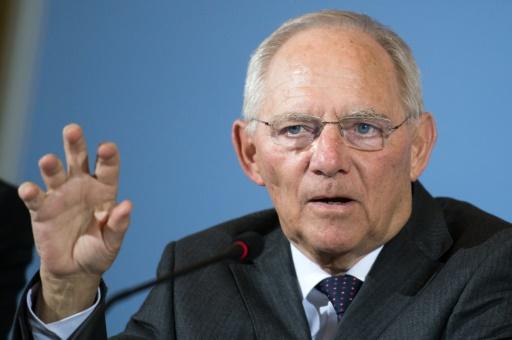
German Finance Minister Wolfgang Schaeuble on Friday issued a stark warning to Britain that it would face costly barriers to the European Union trade zone if it left the bloc.
The comments by one of Europe's most senior officials is a blow to Brexit supporters, who have argued that Britain could negotiate deals to access the single market similar to those in place for non-members Norway and Switzerland.
"That won't work," the veteran minister told Germany's Der Spiegel weekly, which on Saturday plans to publish a German-English edition at home and in Britain with "Please don't go!" on the cover.
"That would require the country to follow the rules of a club which right now it wants to leave."
European Commission president Jean-Claude Juncker last month said that British "deserters will not be welcomed with open arms" by European partners if Britain votes to leave in the June 23 referendum, but Schaeuble's intervention is the most explicit threat so far.
Vote Leave chief executive Matthew Elliott hit back, saying there was "no question about it, Britain will still have access to the single market.
"It would be perverse of the eurozone to try to create artificial barriers -- and would do far more damage to them than to anyone else," he said.
The EU accounts for 47 percent of British exports and 54 percent of imports, according to latest government figures.
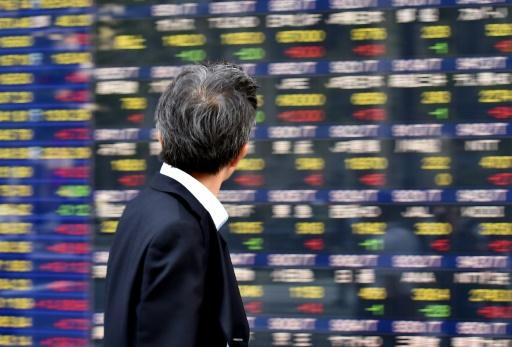
Federal Reserve Chair Janet Yellen boosted Wall Street Friday, restating her confidence in the US economy but softening her view on interest rate hikes after a poor US employment report.
Meanwhile London stocks rallied despite new polls that put the British referendum vote back on a knife-edge and sent the pound tumbling.
Yellen helped markets tentatively put last Friday's surprisingly dismal US jobs report behind them, saying one month's data is not so significant and that the overall labor market situation has been "quite positive".
But she backed away from previous Fed hints for a rate increase in June or July, only saying that tighter monetary policy should come gradually.
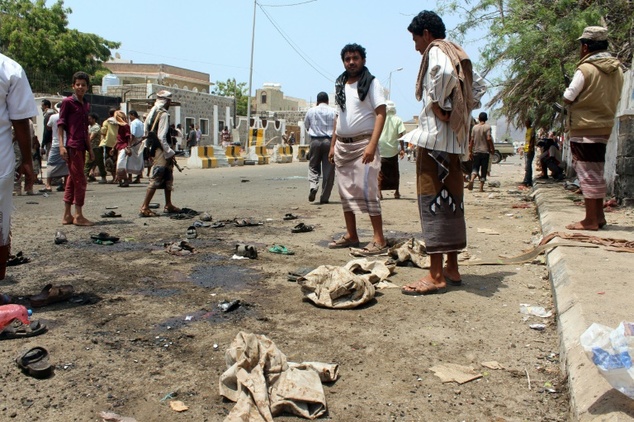
Twin bombings claimed by the Islamic State group hit Yemeni forces in Aden on Monday, killing at least 41 people in the latest of a spate of attacks in the southern city.
The attacks in Aden -- which is serving as the temporary government headquarters after rebels forced authorities from the capital -- follow a major military operation against jihadists in parts of southern and southeastern Yemen.
Backed by a Saudi-led coalition, forces loyal to President Abedrabbo Mansour Hadi are battling both Sunni extremists and Iran-backed Shiite rebels.
In the first attack, a suicide bomber killed 34 people queueing to enlist at a recruitment centre near the Badr base in Aden's Khormaksar district, said Brigadier General Nasser al-Sarei, the commander of Yemen's special security forces.
A subsequent explosion inside the base killed seven soldiers, he said.
In a statement posted online, IS said one of its fighters detonated an explosives belt among "apostate soldiers" at a recruitment centre, followed by the bombing at a gate of the Badr base.
The jihadist group, which has seized control of large parts of Syria and Iraq, also claimed responsibility Monday for a wave of bombings in Syrian coastal cities that killed more than 100 people.
A local resident in Aden described the scene of the Badr explosions as "horrible", saying body parts had been blown dozens of metres (yards) away.
"They came to complete the procedure of their recruitment and receive their first salary," he said, speaking of the young men who had gathered outside the army centre.
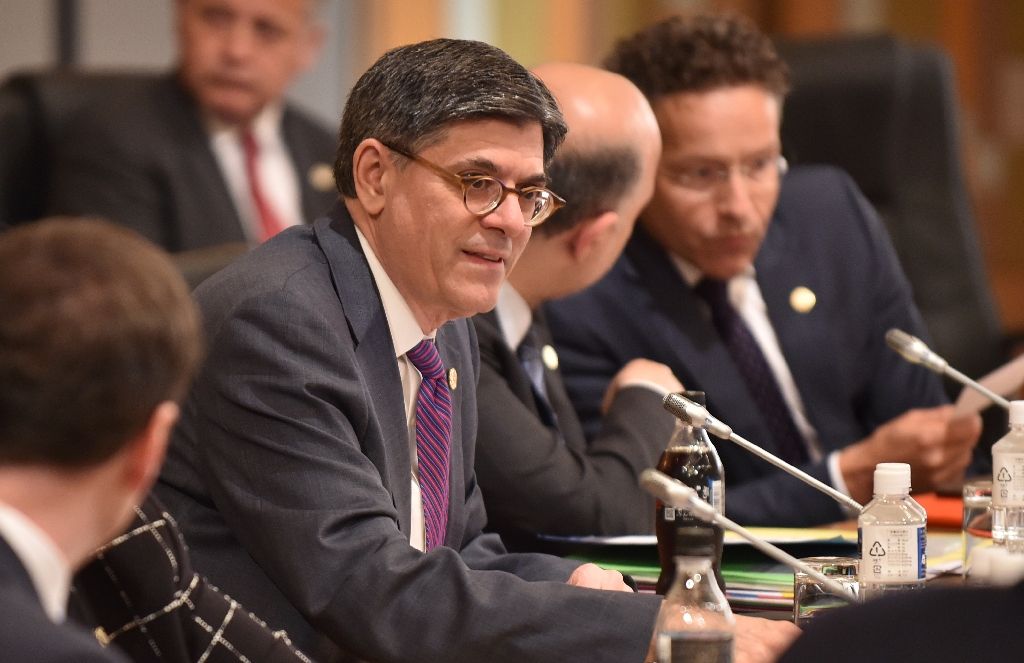
G7 finance ministers on Saturday voiced concern about the sputtering global economy as they looked for a plan to stoke growth, while a currency policy clash overshadowed their meetings.
The club of rich nations also pledged to tackle tax avoidance in the wake of the Panama Papers investigation and beef up efforts to disrupt the murky world of terrorism financing.
Two days of talks at a hot spring resort in northern Japan focused on how to stoke global growth which they said was under threat from myriad challenges, including terrorism, refugee flows and the threat of Britain's exit from the European Union.
The ministers were unanimous in opposing the prospect of a "Brexit", saying it would inflict a "shock" on the global economy that would only worsen the outlook at a time of geopolitical instability.
Host Japan was keen to get its G7 counterparts on board with the view that fiscal stimulus is the best way to kickstart global growth, but Germany and Britain were cool on the idea.
On Saturday, the group suggested a go-your-own-way approach.
"(We) discussed how to employ a balanced policy mix -- monetary, fiscal, and structural -- taking into account country-specific circumstances," they said in concluding remarks.
Japan's determination to tame the resurgent yen was another sensitive topic, after its repeated threats to intervene in forex markets put it on a collision course with its G7 counterparts.
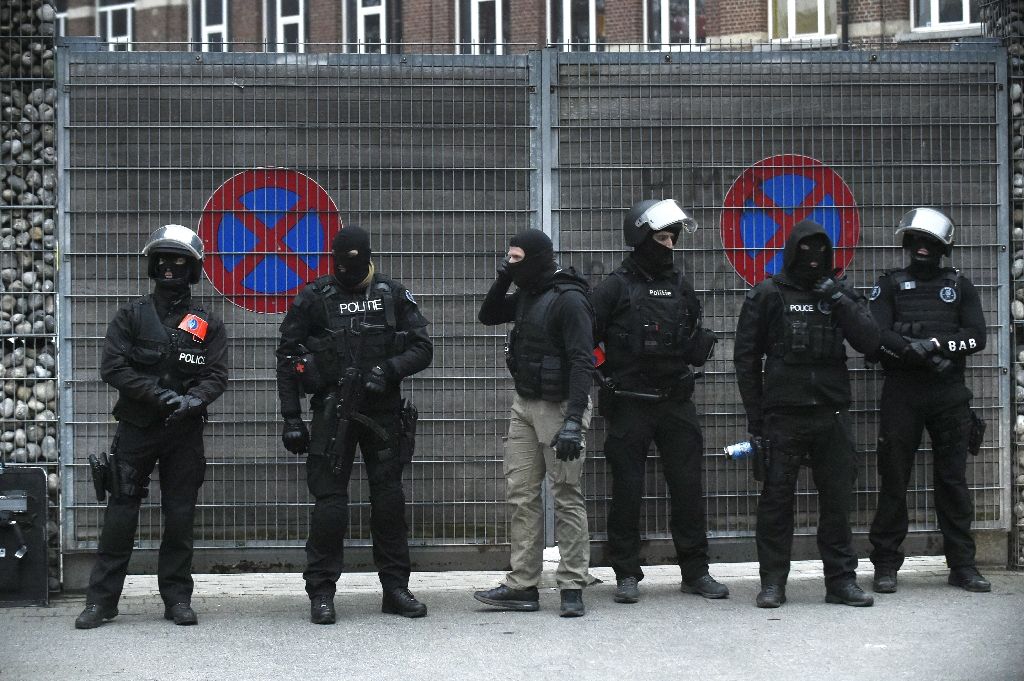
French anti-terror judges will Friday begin their first questioning of Salah Abdeslam, a member of the jihadist cell which killed 130 people in a series of attacks in Paris in November.
The 26-year-old arrived early Friday for interrogation in central Paris under heavy security, escorted by military police, elite police units and a helicopter.
Authorities hope Abdeslam will be able to shed light on the operational details of the Paris attacks, as well as provide clues as to whether other cell members are still at large.
For months, Abdeslam was the most wanted fugitive in Europe until he was tracked down and arrested on March 18 in the Brussels neighbourhood of Molenbeek where he grew up.
Transferred to France under high security on April 27, he has since been held at Fleury-Merogis prison, southeast of Paris.
- Key role -
A childhood friend of suspected ringleader Abdelhamid Abaaoud, Abdeslam is thought to have played a key role both on the night of the Paris attacks on November 13, and in their preparation.
Two others have been arrested in France in connection with the attacks carried out by the Islamic State group, but they are considered secondary participants.
Abdeslam played a key role, dropping off the three suicide bombers who blew themselves up outside the Stade de France national stadium in northern Paris.
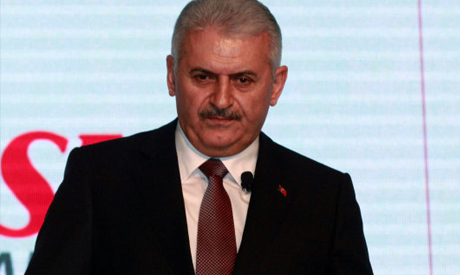
Turkey's ruling party named a loyal ally of President Recep Tayyip Erdogan as the new prime minister Thursday, with the incoming premier immediately vowing to "work in total harmony" with the strongman leader.
The ruling Justice and Development Party (AKP) will officially appoint Transport Minister Binali Yildirim as its chairman Sunday, meaning he will automatically become prime minister.
Yildirim will replace Ahmet Davutoglu, who stepped down after a struggle with Erdogan, as the president seeks to concentrate more power in the presidential office.
"We will work in total harmony with all our party comrades at all levels, beginning with our founding president and leader," said Yildirim after being named party head, referring to Erdogan.
The 60-year-old Yildirim is seen as one of Erdogan's closest longtime confidants and has served an almost unbroken stint from 2002 to 2013 as transport minister and then again from 2015.
They are both strongly opposed to resuming talks with the outlawed Kurdistan Workers Party (PKK), the Kurdish militant group that has claimed responsibility for several attacks across Turkey since a two-year-long ceasefire collapsed in 2015.
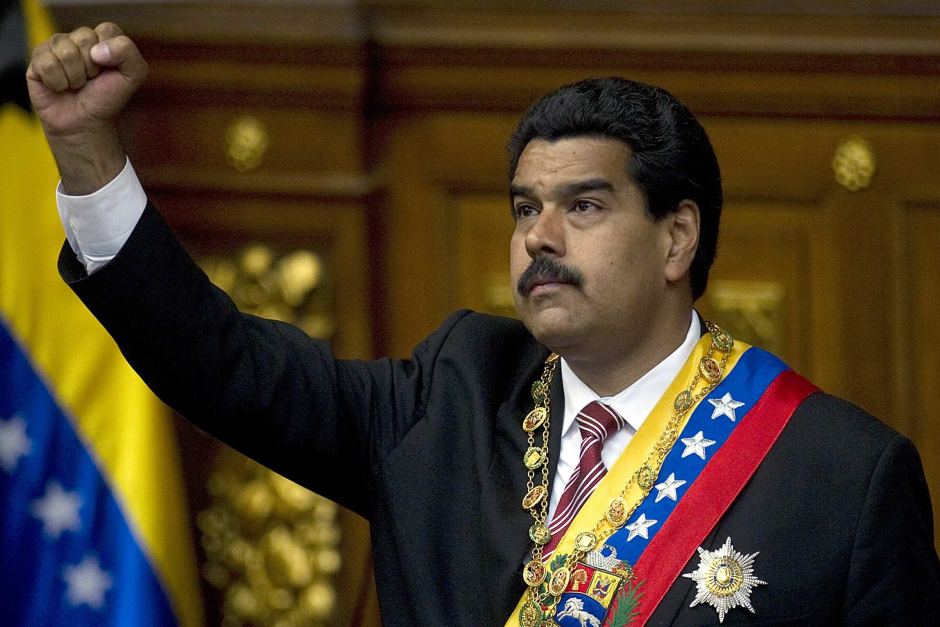
Protests were to take place across Venezuela on Wednesday against President Nicolas Maduro in the first challenge to sweeping powers he has decreed for police and soldiers under a state of emergency.
The opposition-led marches in Caracas and other cities were to demand that authorities validate a recall referendum seeking Maduro's ouster.
But the 53-year-old president has dismissed the push against him.
On Tuesday he said the referendum was "not viable" and a petition it was based on with 1.8 million signatures was riddled with "fraud."
The 60-day state of emergency was imposed from Monday to tackle what Maduro said were threats to security, as well as food and energy shortages.
Many of the measures rely on Venezuela's army and police being deployed to carry them out.
It notably suspends many constitutional protections by opening the way to expropriations and almost any action deemed necessary to maintain public order.
Individuals, companies and non-governmental organizations in Venezuela with links to foreign groups are also to be put under scrutiny and risk having their finances frozen, according to the decree.
The opposition-controlled congress late Tuesday rejected the decree in a vote, saying it undermined democracy. But the Supreme Court may overrule that, as it has with other congressional decisions.

A few days ago it was announced that Rosneft would be making its first LNG delivery to Egypt. However, according to Russian Mass Media, this deal does not look very promising. For example: the contract volume, which was announced a year ago, has already decreased. In addition, to the decrease in volume there are other risks associated with this contract. The first is linked to Egypt’s plans to develop its own offshore drilling, and the second, to the possible problems EGAS will have making payments for Rosneft’s LNG. However, Rosneft has accepted these risks in the hope of earning from the high price.
According to experts, such a "risky" deal could be due to the financial difficulties, the company has recently been facing since the drop in oil prices. Given the status of the oil giant, it is believed that they just need to show that the company is "profitable". This is why, according to experts, Rosneft is willing to engage in risky projects.
In mid-April a suit was filed against Russian pipeline operator Transneft, regarding their preferred shares. The plaintiff, OOO “Projector” is a little known company that bought 141 preferred shares (0.0019% of the share capital) of Transneft last year. In its claim it stated that dividends on preferred shares were not paid in full as Transneft reported a lower net profit in order to avoid profit distribution to its subsidiaries. The plaintiff insisted that due to the fact that the dividends were not paid in full the preferred shares should be converted by the court to voting shares.

















